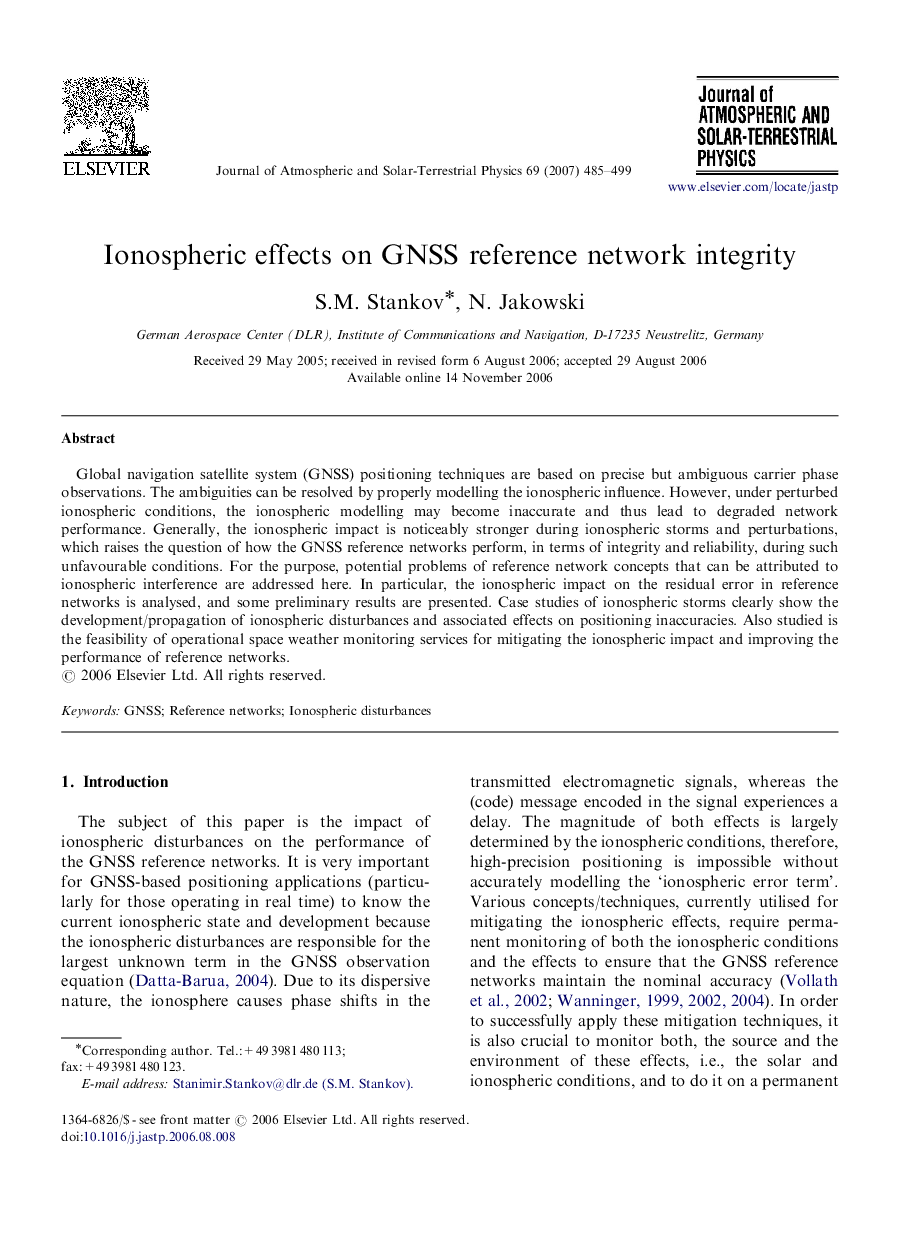| Article ID | Journal | Published Year | Pages | File Type |
|---|---|---|---|---|
| 1778035 | Journal of Atmospheric and Solar-Terrestrial Physics | 2007 | 15 Pages |
Global navigation satellite system (GNSS) positioning techniques are based on precise but ambiguous carrier phase observations. The ambiguities can be resolved by properly modelling the ionospheric influence. However, under perturbed ionospheric conditions, the ionospheric modelling may become inaccurate and thus lead to degraded network performance. Generally, the ionospheric impact is noticeably stronger during ionospheric storms and perturbations, which raises the question of how the GNSS reference networks perform, in terms of integrity and reliability, during such unfavourable conditions. For the purpose, potential problems of reference network concepts that can be attributed to ionospheric interference are addressed here. In particular, the ionospheric impact on the residual error in reference networks is analysed, and some preliminary results are presented. Case studies of ionospheric storms clearly show the development/propagation of ionospheric disturbances and associated effects on positioning inaccuracies. Also studied is the feasibility of operational space weather monitoring services for mitigating the ionospheric impact and improving the performance of reference networks.
